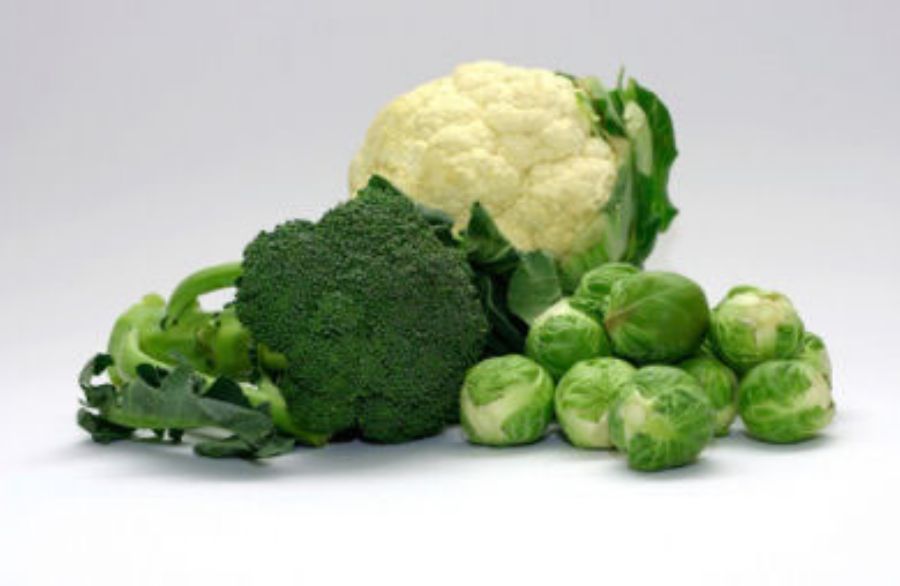10 Tips to Boost Your Immune System
-

Eat Your Vitamins
Some nutrients and foods that researchers believe may enhance the immune system are readily available in a variety of healthful foods. Try adding these immune-boosting items to your daily meals:
- Vitamin C-rich foods, like citrus fruit and broccoli
- Vitamin E-rich foods, like nuts and whole grains
- Garlic
- Zinc-rich foods, like beans, turkey, crab, oysters, and beef
- Bioflavanoids, which are found in fruits and vegetables
- Selenium-rich foods, like chicken, whole grains, tuna, eggs, sunflower seeds, and brown rice
- Carotenoid-rich foods, like carrots and yams
- Omega-3 fatty acids, found in nuts, salmon, tuna, mackerel, flaxseed oil and hempseed oil
- Vitamin C-rich foods, like citrus fruit and broccoli
-

Manage Stress
According to the National Institutes of Health, hormones (like cortisol) that hang around during chronic stress can put us at risk for obesity, heart disease, cancer, and a variety of other illnesses. Take time out of your day to do a relaxing activity you enjoy, like journaling, meditating, going for a jog, or talking to a friend on the phone. Return refreshed and kick your stressors to the curb!
-

Drink in Moderation
A 1998 article in the journal Alcoholism: Clinical and Experimental Research states that alcohol abuse can also cause lead to immunodeficiency, making you more susceptible to bacterial pneumonia, tuberculosis, and other communicable diseases. But the moderate use of alcohol (one drink daily for women, and two for men) has not been associated with negative effects on the immune system. In fact, according to a 2007 article in the British Journal of Nutrition, there is an increasing body of evidence linking health benefits linked with moderate consumption of polyphenol-rich alcoholic beverages, like wine or beer. The article states that, while heavy alcohol use can suppress the immune response, “moderate alcohol consumption seems to have a beneficial impact on the immune system compared to alcohol abuse or abstinence.” So for the time being, the advice remains: everything in moderation.
-

Work Out Regularly
According to the President’s Council on Physical Fitness and Sports (PCPFS), data from numerous studies show that regular exercise reduces the number of sick days. In three separate studies cited in the June 2001 issue of the PCPFS’ Research Digest, women who engaged in 35-45 minutes of brisk walking, five days a week, for 12-15 weeks experienced a reduced number of sick days compared to the control (sedentary) group. A consistent fitness program may be your ticket to better health!
-

Drink Your Water
According to Registered Dietitian and SparkPeople nutrition expert Becky Hand, "water helps to cleanse the body and remove toxins, including germs. By keeping body systems, especially the respiratory system, well hydrated," she says, "you can enhance your virus-fighting potential." Aim for your 8 cups a day to help fend off germs!
-

Get Enough Sleep
According to authors of a sleep study published in 2001 in the journal Seminars in Clinical Neuropsychiatry, just a few days of sleep deprivation can be detrimental to one's immune system. The average adult should be getting 7 to 8 hours of sleep per night, although some people need as few as 5 hours, while some need as many as 10 hours. Make sure you avoid caffeine and other stimulants before going to bed to ensure that you will be well rested.
-

Eat Your Vegetables
When you eat vegetables from the brassica family, which includes broccoli, Brussels sprouts, cauliflower, and cabbage, they produce a chemical that can stop the growth of cancer cells and boost your immune system, according to research published online in the Journal of Nutritional Biochemistry from the University of California, Berkeley. Choose a variety of veggies, including broccoli, to meet your daily quota.
-

Quit Smoking
In an older but still relevant study published in the 1983 edition of the Medical Journal of Australia, immune system markers in 35 smokers were analyzed before they quit smoking and then again three months after they had quit. Compared with a control group who continued to smoke, the ex-smokers had significant, positive changes in many measurements of their immune systems. Smoking and using tobacco products contributes to a host of health problems, and this is one more you can add to your list for reasons to quit.
-

Lose Weight
Research performed by scientists at the University of North Carolina at Chapel Hill School of Medicine has shown that obesity prevents the immune system from functioning properly, increasing its vulnerability to infection. In the study, obese mice were 50 percent less capable of killing the flu virus, compared to lean mice. The researchers believe that the same holds true in humans. To find out how many calories you need to maintain or lose weight, refer to your customized Nutrition Tracker.
-

Exercise Moderately
When you're exercising, intensity matters. Your workouts don't have to be strenuous to provide immune-enhancing benefits. A study published in Medicine and Science in Sports and Exercise found that upper respiratory infections were more common among athletes during heavy training. Whatever you do, listen to your body. If you're under the weather already, take it easy until you feel better.
See more wellness slideshows
10 Tips to Boost Your Immune System
Cold and flu season is here. Is your body in shape to fight off viruses and fend off germs that could make you sick? If not, start with these 10 simple habits that will help you stay healthy all season long.
Start Slideshow
Eat Your Vitamins
Some nutrients and foods that researchers believe may enhance the immune system are readily available in a variety of healthful foods. Try adding these immune-boosting items to your daily meals:
- Vitamin C-rich foods, like citrus fruit and broccoli
- Vitamin E-rich foods, like nuts and whole grains
- Garlic
- Zinc-rich foods, like beans, turkey, crab, oysters, and beef
- Bioflavanoids, which are found in fruits and vegetables
- Selenium-rich foods, like chicken, whole grains, tuna, eggs, sunflower seeds, and brown rice
- Carotenoid-rich foods, like carrots and yams
- Omega-3 fatty acids, found in nuts, salmon, tuna, mackerel, flaxseed oil and hempseed oil


.jpg)
.jpg)



